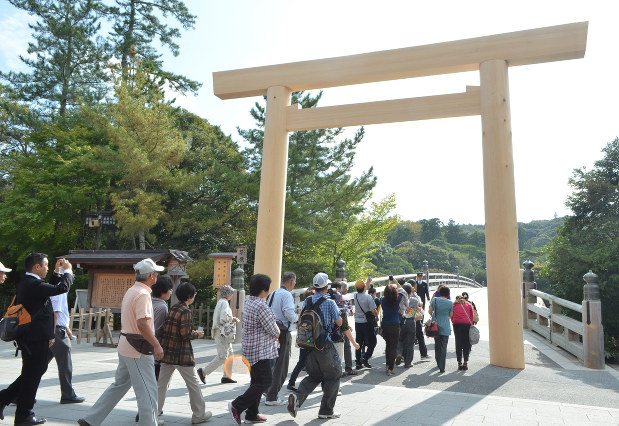Hebi Meta San: The Marty Friedman Interview
By Jon Wilks
When it comes to guitar chops, there are few that have trumped the technical wizardry of former Megadeth supremo, Marty Friedman. Throughout the nineties, he topped poll after guitar-legend-poll, before giving it all up to move across the world and pursue a career in J-pop. On the eve of his 7th solo release, Friedman spoke to Japanzine about the ins and outs of becoming a gaijin tarento.
Not that he’d use that label himself. For a guy known in Japan as Hebi-Meta San (Mr. Heavy Metal), Marty Friedman is surprisingly self-effacing. He’s polite, apologetic, and extremely knowledgeable when it comes to Japanese music – undoubtedly his real passion. The heavy metal god we encounter here is more Alice Cooper’s pseudo professor in Wayne’s World than the bat-eating drug fiend that stereotype prescribes. Whether he’s talking about Ayumi Hamasaki’s latest creation or the history of Japanese folk music, his enthusiasm is infectious, and you find yourself in danger of coming away intrigued by J-Pop rather than reviled by it.
This interviewer first encountered Marty at a 1993 Megadeth gig in support of the mighty Metallica, already 3 years into his tenure with one of rock’s most prominent outfits. As lead guitarist with Megadeth, Friedman would record 5 platinum albums and tour the world many times over. It was during one of his many promotional stops in Japan that his musical allegiances were first put to the test.
“When I got here, I was like, ‘what is this music that I’m hearing everywhere?’” he explains. “So I’d buy bucketloads of CDs and get it home and just really get into it. I started listening to it much more than anything else, and started thinking I’d rather be doing this than what was going on in America.” In 1999 he left Megadeth, provoking outspoken frontman Dave Mustaine to criticize him for, “wearing a kimono and Japanese thongs, and playing in a pop band for some chick.”
The chick in question was Nanase Aikawa, whose band Friedman was invited to join shortly after a permanent move to his newly adopted country. “I was a big fan of Aikawa since the mid-90s,” he tells us, adding with typical humility that he got the job out of good fortune rather than talent. “I left Megadeth because I wanted to do something more musical. Megadeth was an amazing band, but we pretty much had only one sound – an amazing sound, but I needed more. I felt like I was being wasted.”
If the shift seemed natural to Friedman, it jarred with much of his fan-base, many of whom felt J-Pop too synthetic to test the abilities of a true musician. “In Japanese music, pretty much anything goes,” he argues. “You can have the most extreme metal to the most tender ballads, and that can all come from the same artist. I love that about Japanese music.”
His association with Aikawa inevitably led to more exposure in the Japanese media world, and it wasn’t long before TV came calling. Hebi Meta San, a small show that flaunted Marty’s credentials as a rock historian as much as anything else, inspired huge ratings and took the newly-minted TV presenter directly to the center of public consciousness. “I had no experience of TV other than your normal music promotion, so when I was offered that show I was hesitant. But it’s had such a positive effect on my career. It’s opened up so many doors, it’s really blown me away.”
He’s since gone on to feature in over 200 TV shows, has recently made his film debut (Gugudatte Neko De Aru), and has still found time to develop a career as a journalist. He writes a monthly column for Nikkei Entertainment, as well as regular pieces for Saizo, Shosetsu Subaru and ASCII. With a schedule as busy as Takeshi Kitano’s, it’s hard not to be impressed. That it’s all completed in self-taught, flawless Japanese makes us lesser mortals start to feel a little inadequate.
I wonder aloud if he feels language has been the key to his new success. “Language isn’t a key,” he retorts. “It should be taken for granted. I’m constantly in learning mode now, and that never ends. I have no shame in asking to have something explained to me, and that’s the way I’ve learned.” Friedman has become so effortlessly fluent that his speech is peppered with Japanese inflections, and on more than one occasion he apologizes for what he perceives to be clumsy English, claiming he’d find it easier if we could switch to his second language.
“I just picked things up as I went, and studied by doing, really,” he recalls. “In the middle of my Megadeth years, I decided that I’d do all my interviews in Japanese, even though I could barely speak it. No translators. That really put the pressure on me to absorb what I could. It probably pissed a lot of people off around me, but I learned as a result.”
While he’ll admit to having experienced a weird take on culture shock (“I don’t really feel that I’m a foreigner over here, but when I see foreigners I think, ‘hey, that guy’s a foreigner!’”), he doesn’t feel he’s turned Japanese quite yet. “I feel more of a global citizen, so to speak,” he explains. “With something as odd as integrating into another society, you’ve really got to want to study, otherwise it’ll be impossible. Language really, really helps to close that invisible wall.”
I wonder how impressed the 15-year-old me would be to find that the man behind much of Countdown to Extinction is now an advocate of applied linguistic study. It doesn’t seem very rock’n’roll, somehow. But he’s off again, enthusiasm cylinders on hyperdrive, this time bending my ear about something called kay?kyoku, “a very Japanese sound that has been passed on through the generations. Every genre – dance, pop, rock, metal – has an element of kay?kyoku, and the interpretation keeps on getting cooler. That mixing up of music is a really bitchin’ thing. And, man! I just can’t get enough of it.”
With a new album in the charts, and more media coverage than ever before, you get the feeling he’ll be bending our ears for sometime yet.
Marty Friedman’s 7th solo album, Exhibit A: Live in Europe is out now on Avex. It is accompanied by Exhibit B: Live in Japan on DVD.





